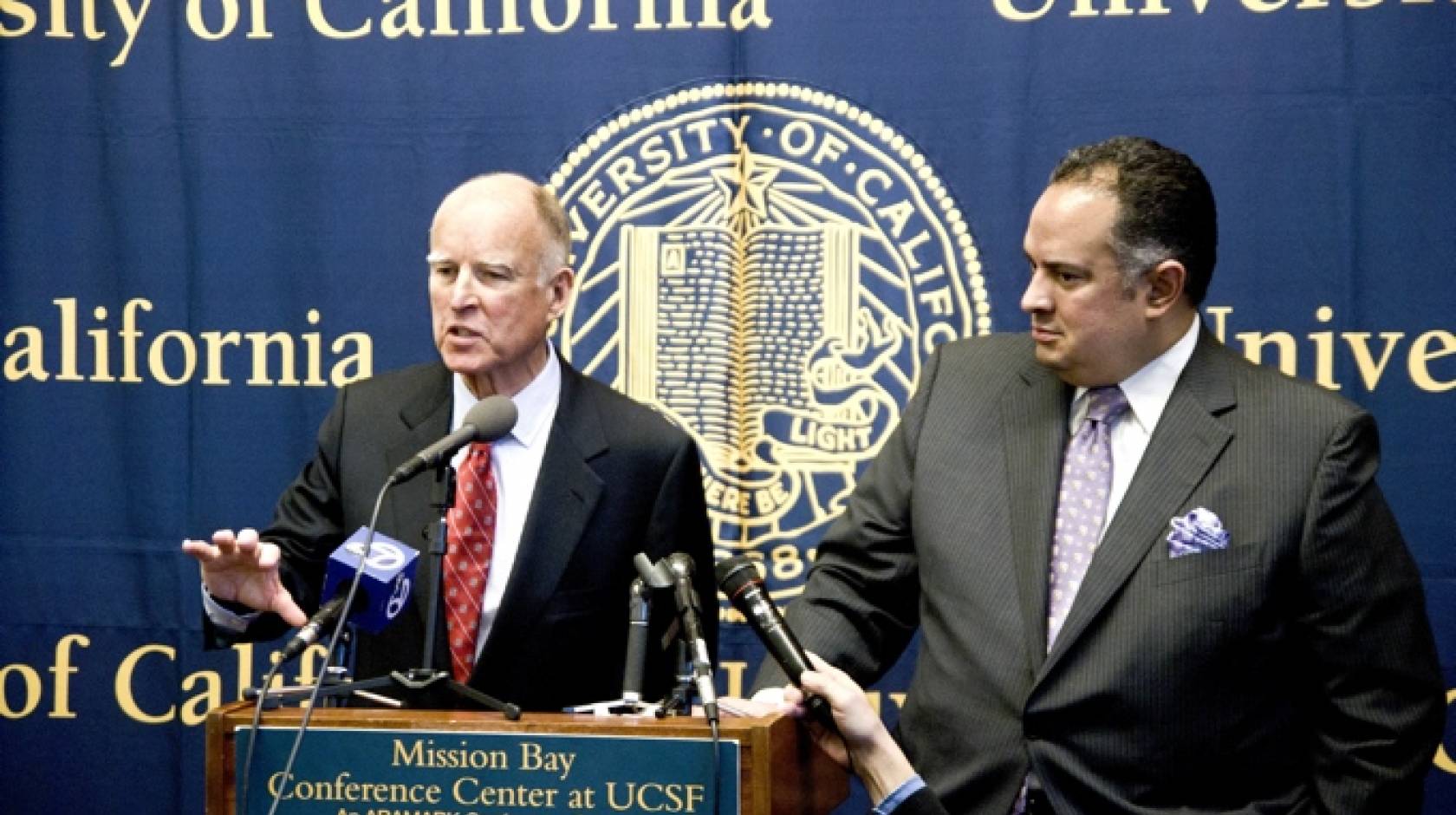Carolyn McMillan, UC Office of the President

In a dramatic sign of the state's renewed focus on public higher education, California's top elected officials joined the University of California Board of Regents Thursday (Jan. 17) in a wide-ranging discussion about state funding for the university.
Gov. Jerry Brown, Assembly Speaker John Pérez, Lt. Gov. Gavin Newsom and state schools chief Tom Torlakson serve as ex-officio members of the board, but it is rare for all four to attend a regents meeting.
"I've never seen collaboration (like this) between the governor, the speaker and the regents," Brown told reporters during a briefing. "This is something new."
Pérez agreed it was significant that all four leaders were in attendance, and said that the renewed emphasis on education was a sign that California had turned a fiscal corner and was no longer operating in crisis mode.
"We understand that the only way to build out of the economic morass of the last four years is to commit to education," Pérez said. "We want to maintain UC as the greatest research university in the world."
Earlier this month, Brown proposed a state spending plan for the coming fiscal year that would moderately boost the University of California's operating budget for the 2013-14 academic year. The state legislature has yet to weigh in on the plan. If the proposal is adopted, state general funds for UC's operating budget would rise from $2.37 billion to $2.84 billion.
UC President Mark Yudof said he was hopeful that the funding increase would allow UC to avoid an undergraduate tuition increase in 2013-14.
"We have to see what (budget) the speaker and his colleagues produce, but I'm very optimistic, given his remarks today."
The budget relief is a direct result of Prop. 30, a tax measure championed by Brown and approved by California voters in November. It is expected to raise billions of dollars for education over the next seven years. Had it failed, UC would have faced an automatic cut of $250 million in state funding.
Nathan Brostrom, UC's executive vice president for business operations, said that the university still would face funding challenges under Brown's budget scenario, but that the outlook is far improved from the last few years.
"This is truly a new day, where we are looking at a strong fiscal outlook not only for 2013-14, but also the out years," Brostrom said.
Over the last five years, state funding for UC has shrunk by $900 million, or roughly one third. At the same time, many of the university's mandatory costs continued to rise while student enrollment grew. UC has coped with the growing budget deficit by implementing a variety of administrative efficiencies, as well as resorting to layoffs, hiring freezes and program consolidations. About 38 percent of the gap has been made up through student tuition increases.
Given that long-term costs are expected to keep rising, UC must get creative about finding new sources of revenue beyond additional state funding or tuition, Brown and others told the regents.
"We've got to think big," Brown said. "Let's not get imprisoned by paradigms of the past that are now obsolete."

